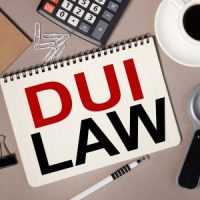What is the Best Defense for DUI?

In many cases, the best defense for DUI is a defense that bypasses intoxication. If the defendant submitted a chemical sample, and that sample passed legal muster, intoxication is very difficult to disprove in Florida. The Sunshine State has a per se DUI law. Subjects with a BAC above the legal limit are intoxicated as a matter of law. Fortunately, several non-intoxication defenses are available.
A Tampa DUI lawyer leverages these defenses at trial and during pretrial negotiations to obtain the best possible result under the circumstances. At trial, prosecutors must prove every element of a DUI, not just intoxication, beyond any reasonable doubt. During pretrial negotiations, if a lawyer convinces prosecutors that they face long odds at trial, they usually agree to favorable resolutions, such as a reduction to reckless driving or another lesser included offense.
“Driving” Defenses
Officers must have reasonable suspicion to detain motorists and probable cause to demand that they provide chemical samples.
The reasonable suspicion rule prevents profiling stops. Officers can’t pull people over because they don’t “look right,” perhaps because they leave bars late at night. Instead, officers must have hard evidence of criminal activity. That criminal activity could be a traffic violation or something else unrelated to DUI.
Approved DUI roadblocks are the biggest exception to the reasonable suspicion rule. Approved roadblocks adhere to all federal and state guidelines, such as a neutral detention formula and a limited detention time.
In both cases, officers cannot simply order people out of their cars and demand that they perform field tests (more on that below). Instead, they must determine that the defendant may be intoxicated. Usually, they use physical intoxication symptoms, like bloodshot eyes, to make this determination.
Normally, officers use poor performance on the walk-and-turn and other field sobriety tests to establish probable cause. Usually, the officer’s subjective opinion that the subject “failed” the tests is sufficient.
However, some defendants refuse to perform field tests. If that happens, officers usually arrest them. But due to a lack of probable cause, these arrests usually don’t hold up in court. Additionally, some officers are biased or hold defendants to impossibly high standards.
“While” Defenses
DUI charges only hold up in court if the state proves, beyond a reasonable doubt, that the defendant was driving the vehicle “while” intoxicated.
This element is very hard to prove in DUI collision cases. Usually, by the time officers arrive at the scene, everyone has exited their vehicles. So, the officer cannot testify that the defendant was behind the wheel. A civilian witness must provide this testimony.
Police officers are basically expert witnesses. But most civilians haven’t testified in court before. As a result, a Tampa criminal defense lawyer can often undermine the credibility of their testimony.
Incidentally, Florida law broadly defines driving a vehicle. If the defendant was behind the wheel with the keys, the defendant was usually driving the car, even if the car wasn’t in motion. However, in most cases, the defendant must have been driving (or operating) the car while in a public place. Apartment complex and shopping mall parking lots usually aren’t public places. Gated communities aren’t public places either even if the gate was open at the time.
Rely on a Diligent Hillsborough County Attorney
A criminal charge is not the same thing as a criminal conviction. For a confidential consultation with an experienced criminal defense lawyer in Tampa, contact the OA Law Firm. We routinely handle matters in state and federal court.




